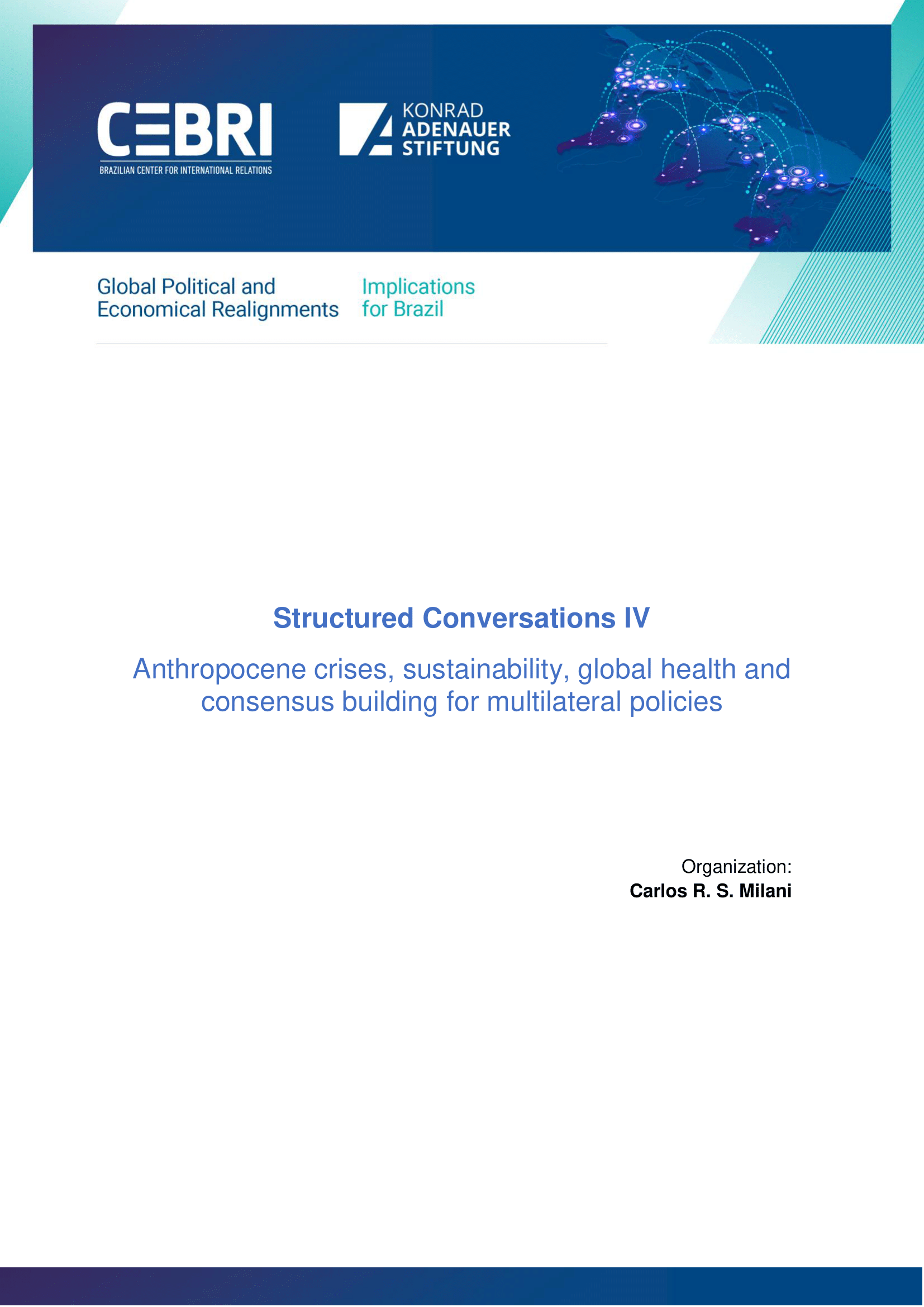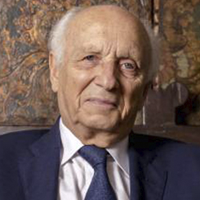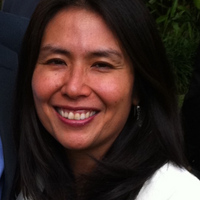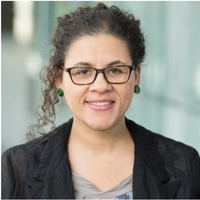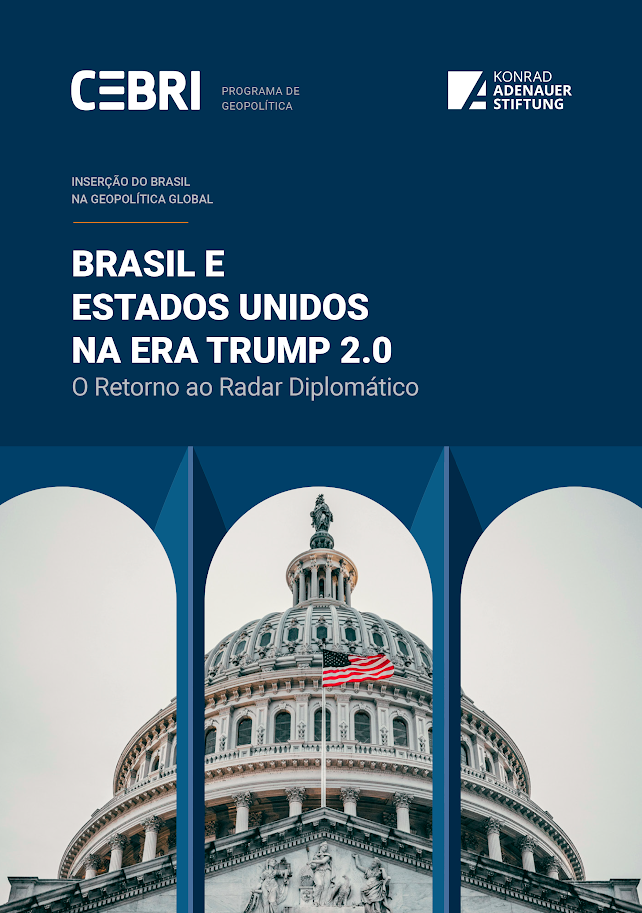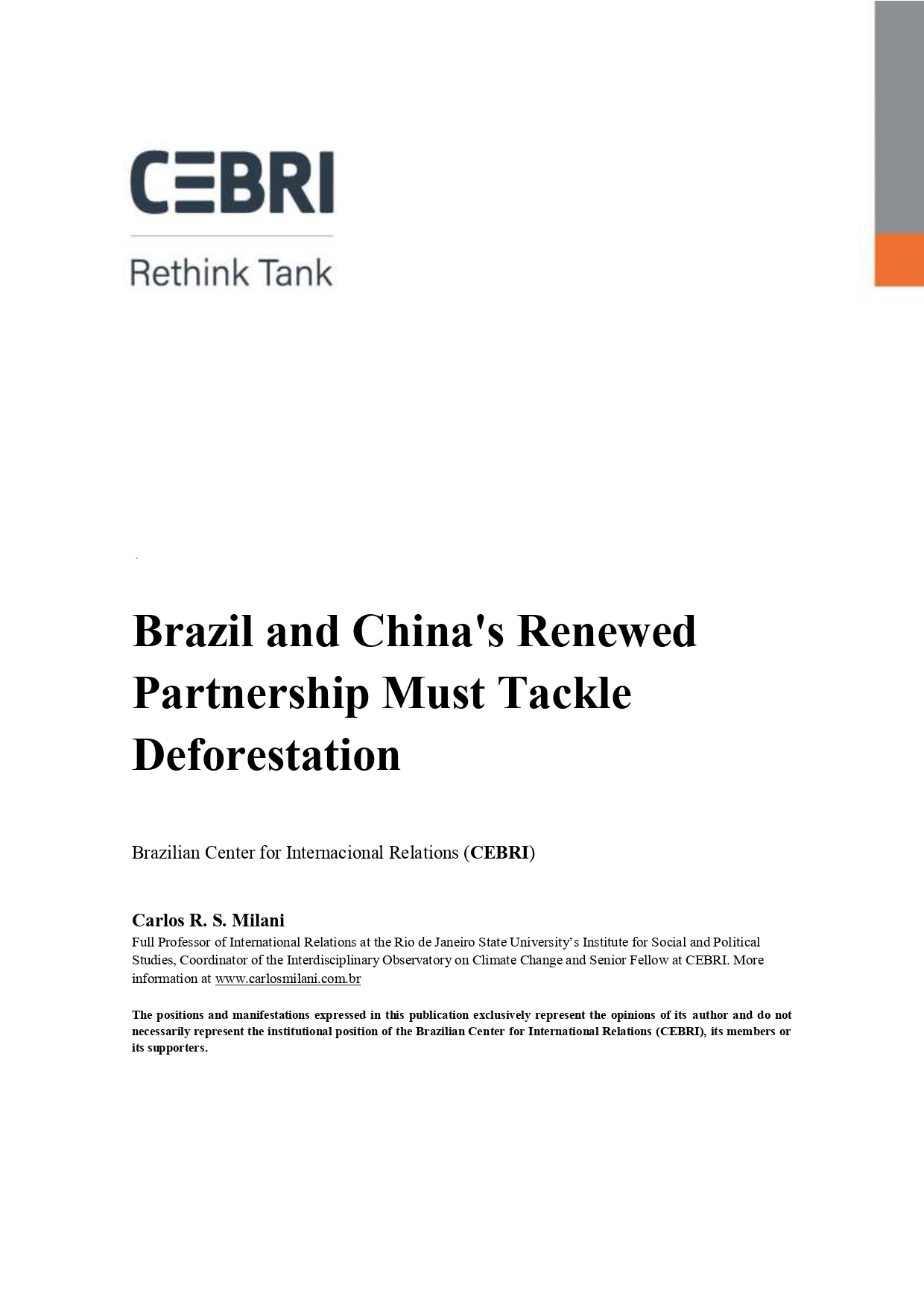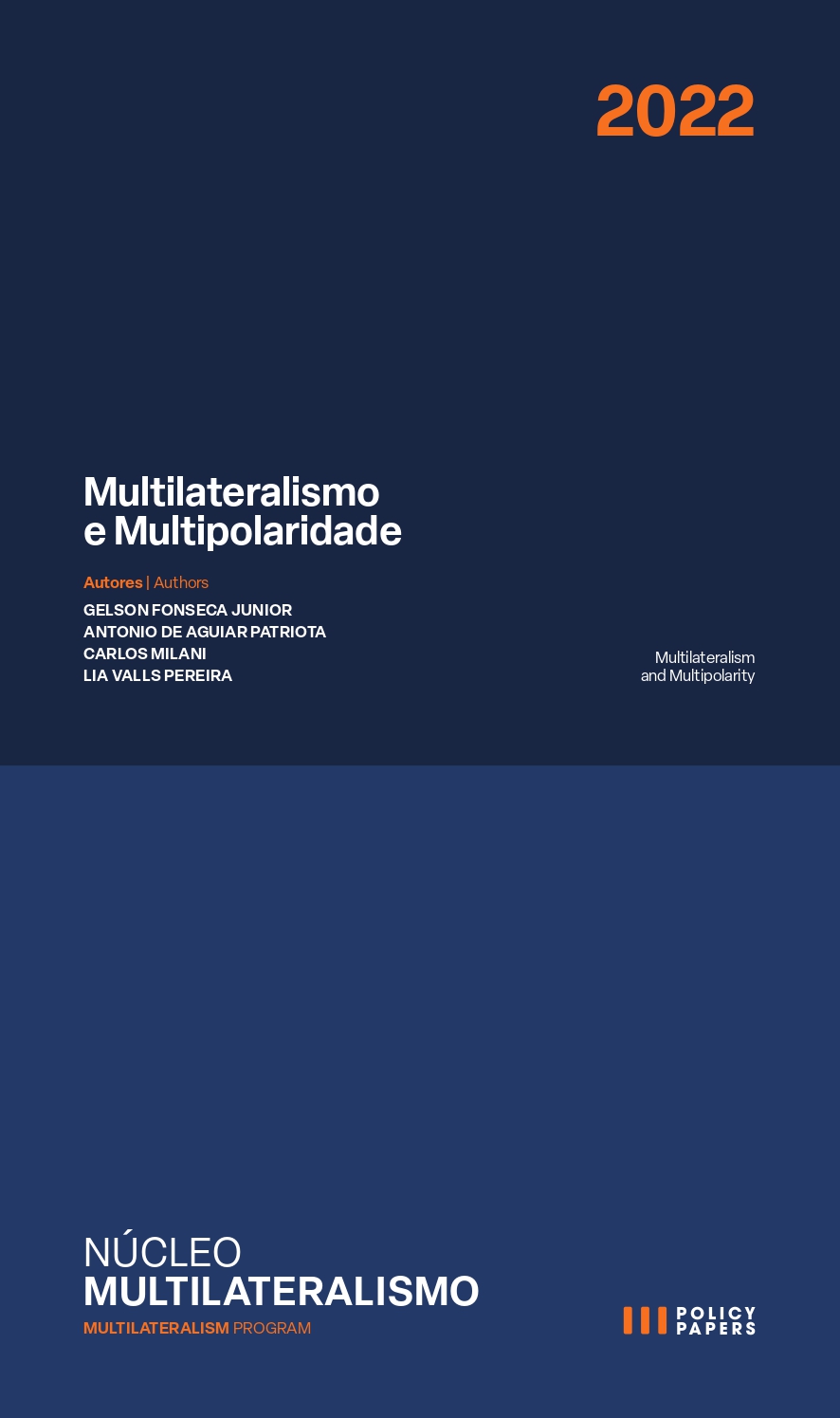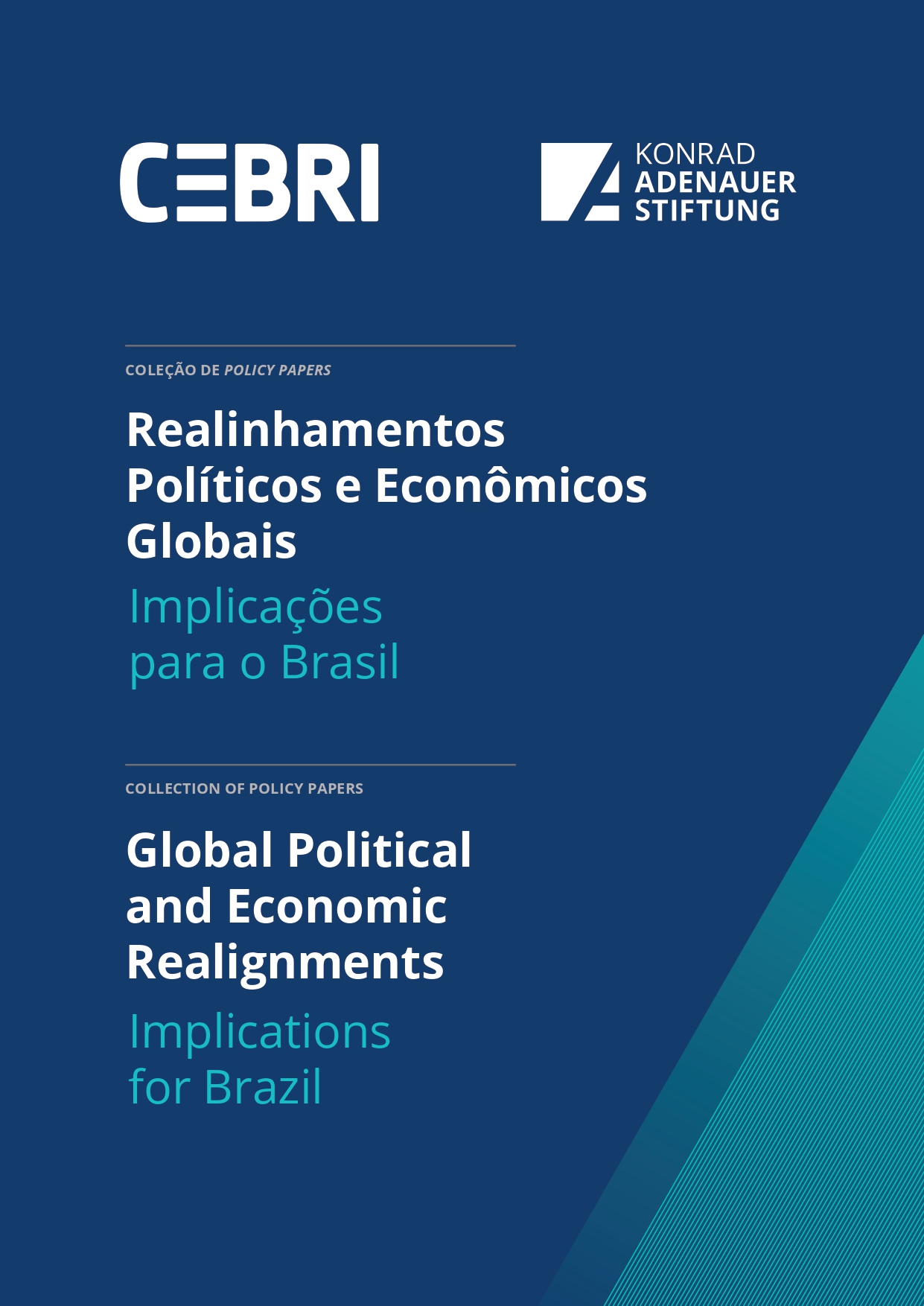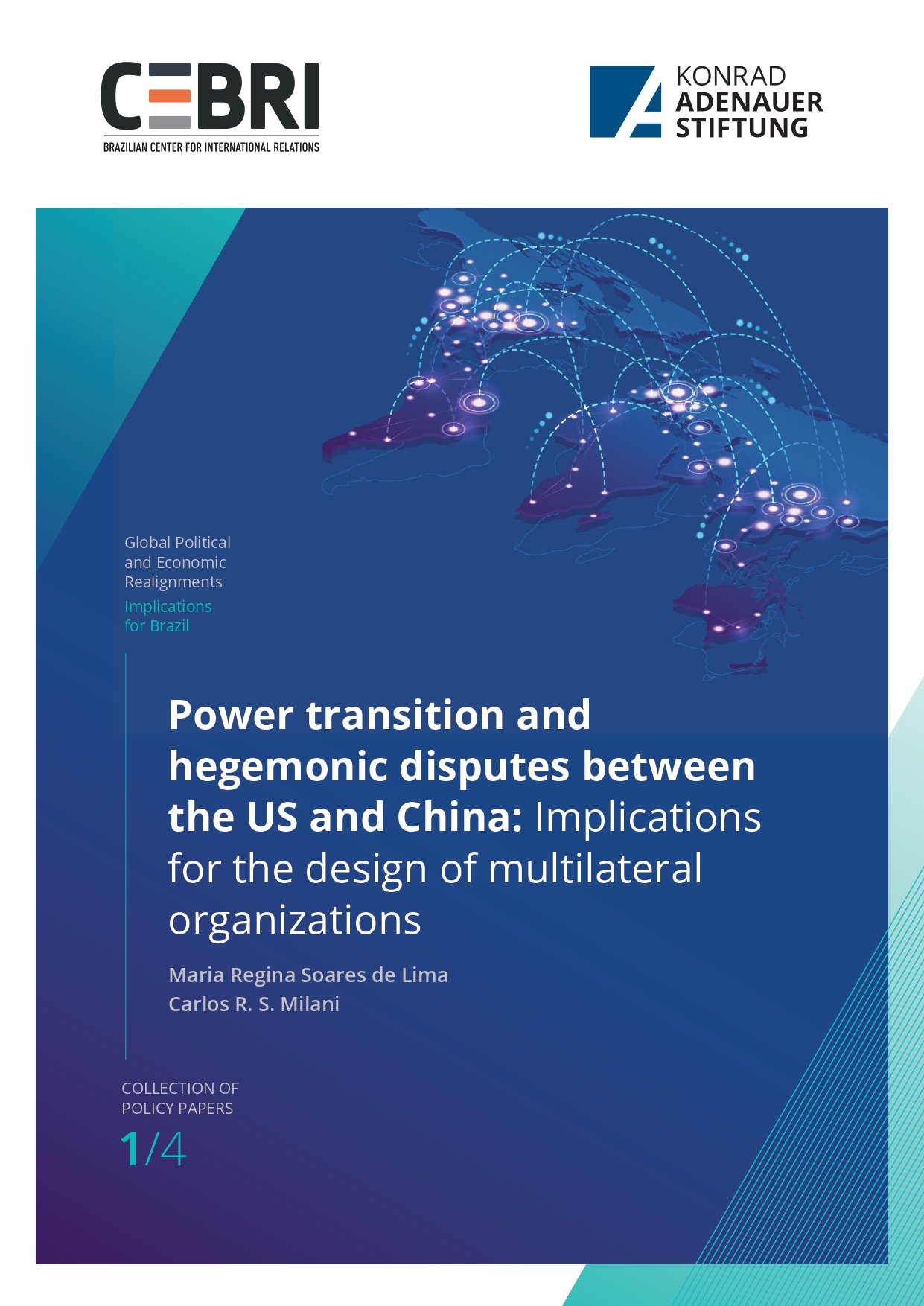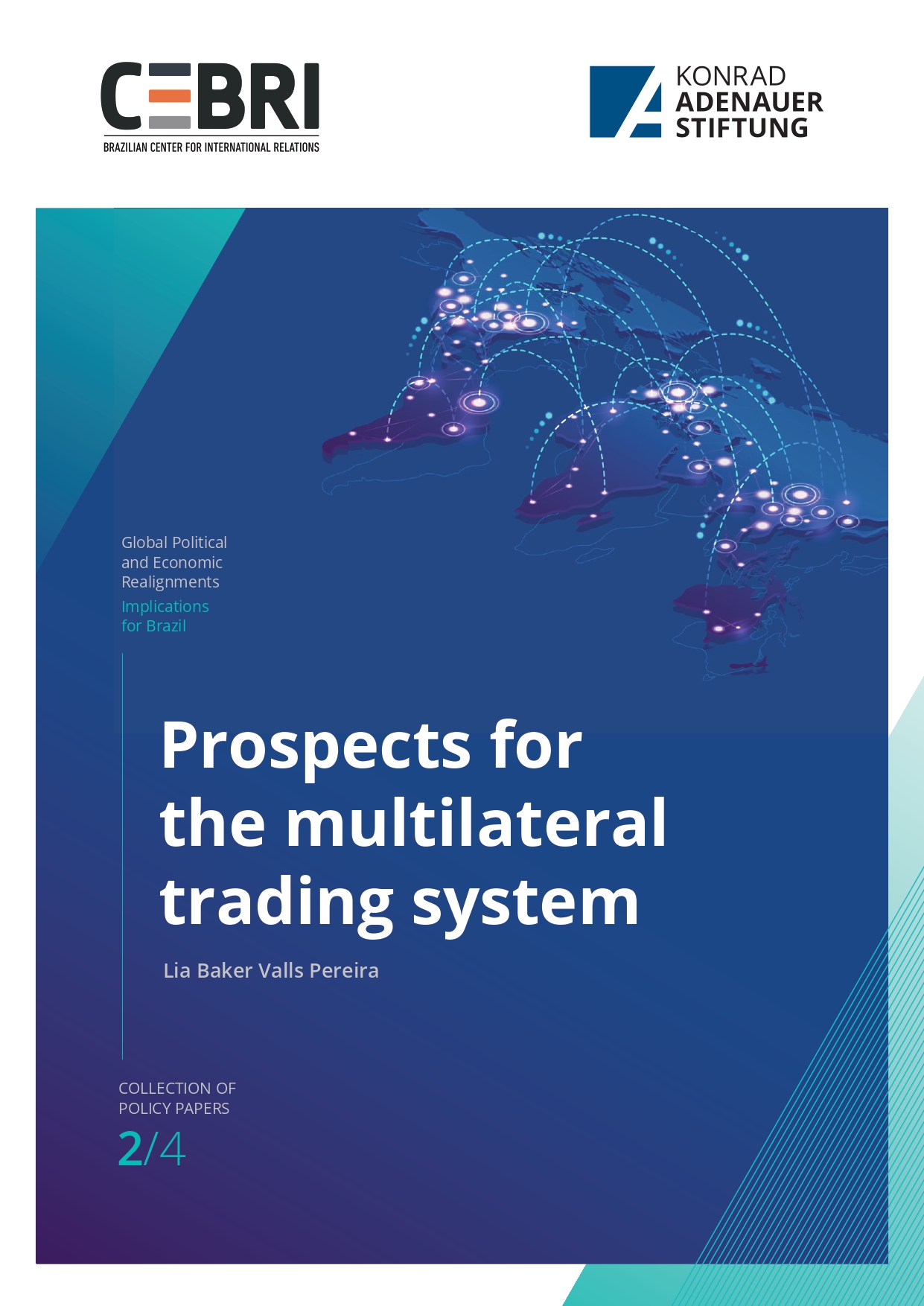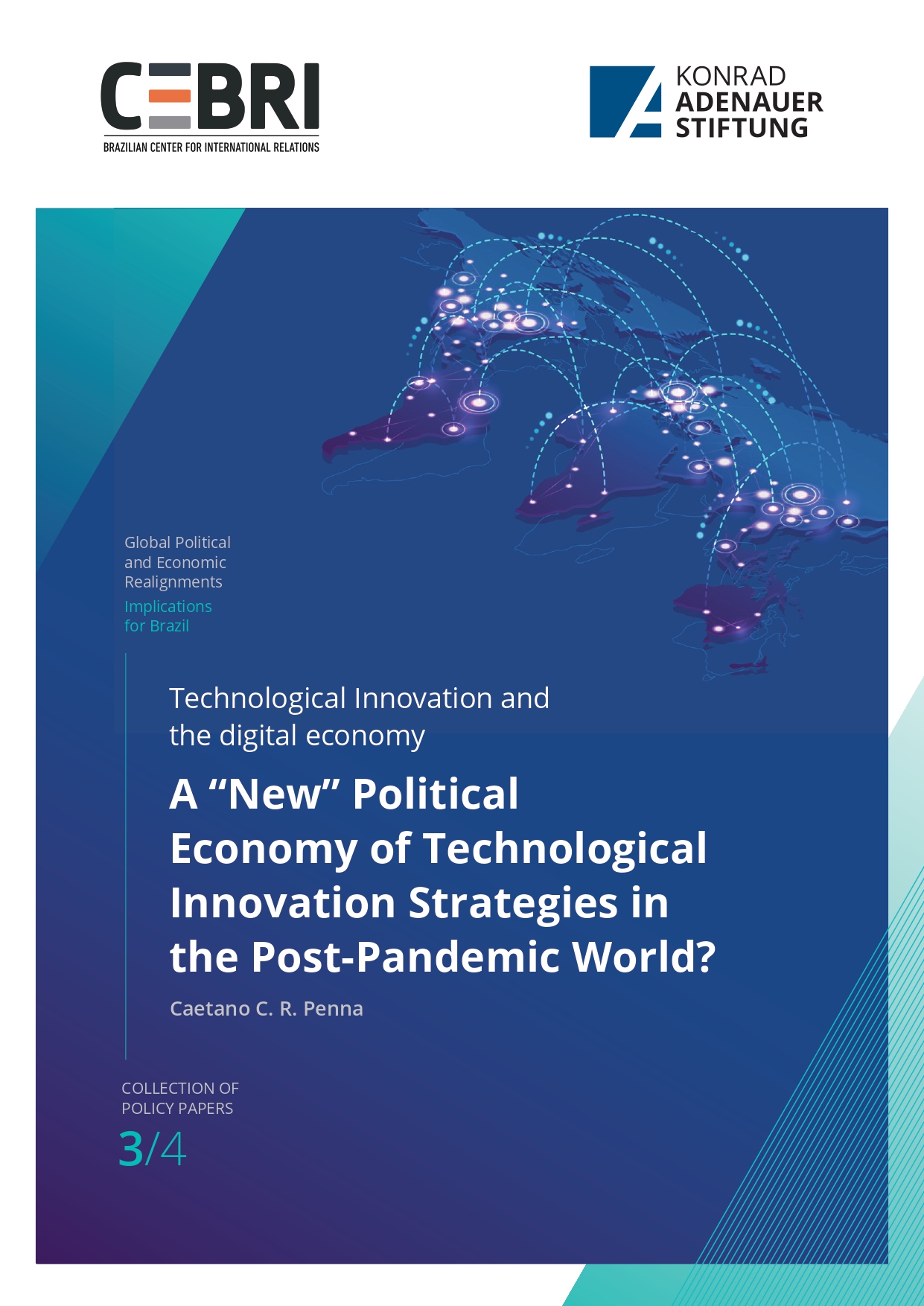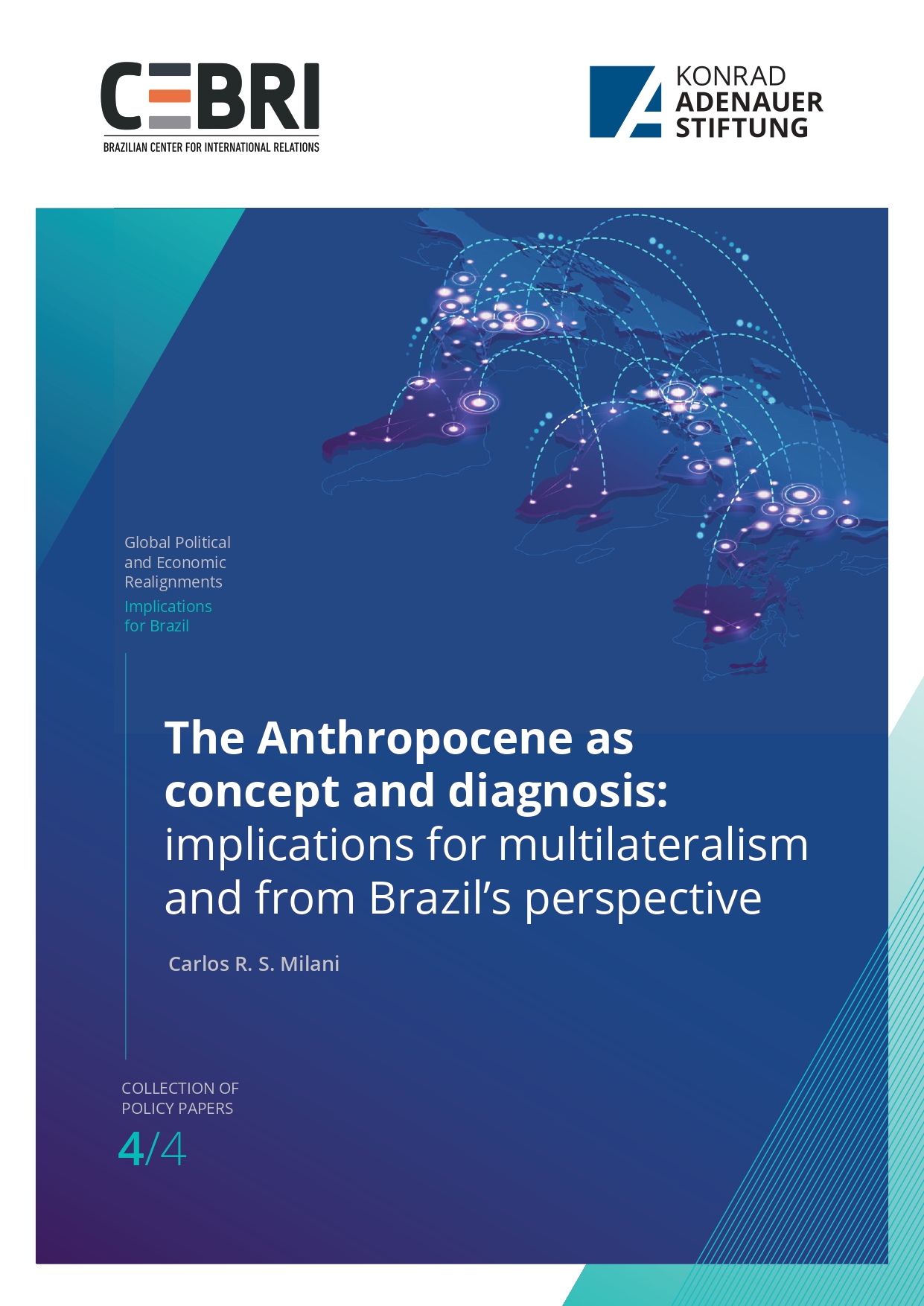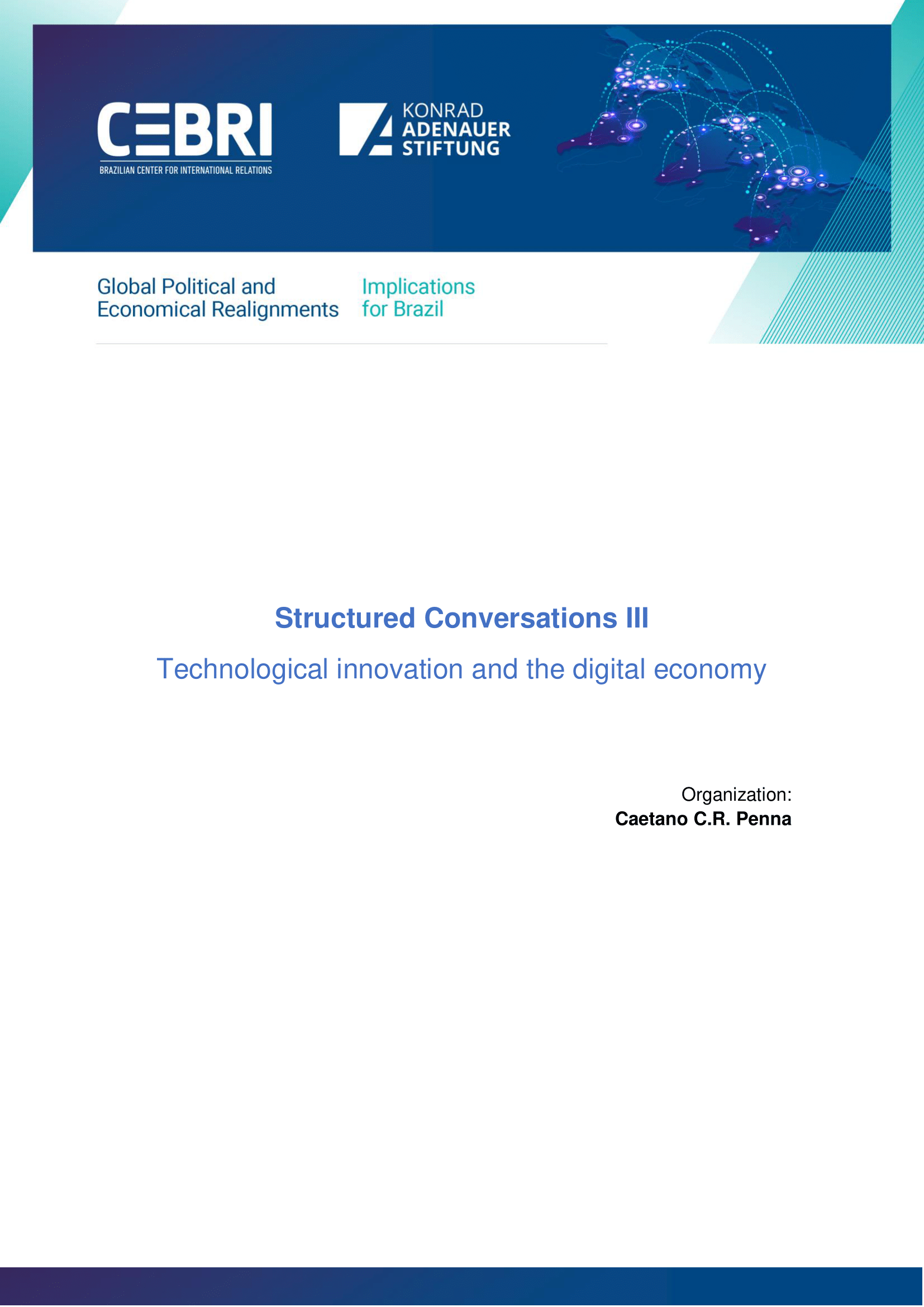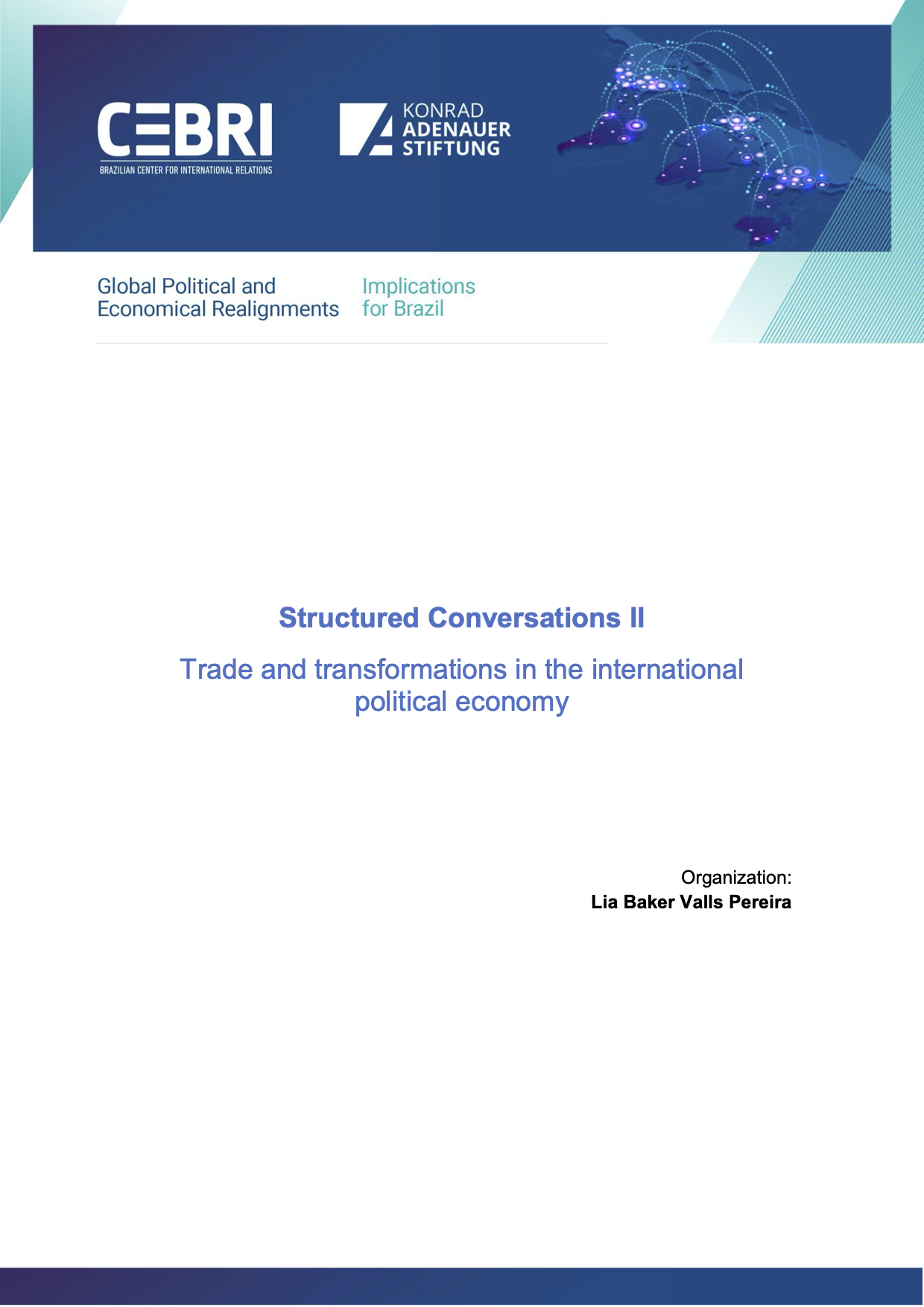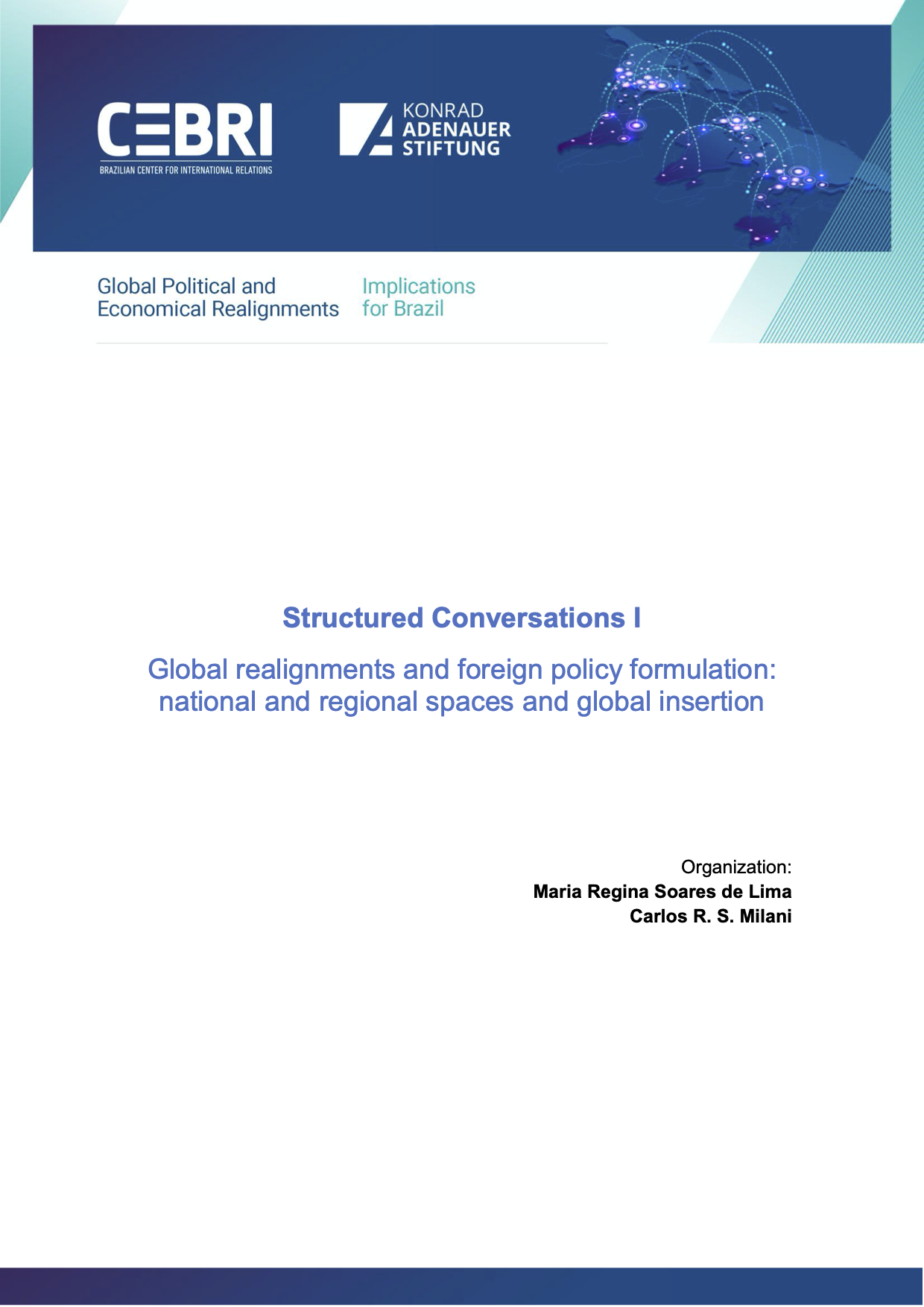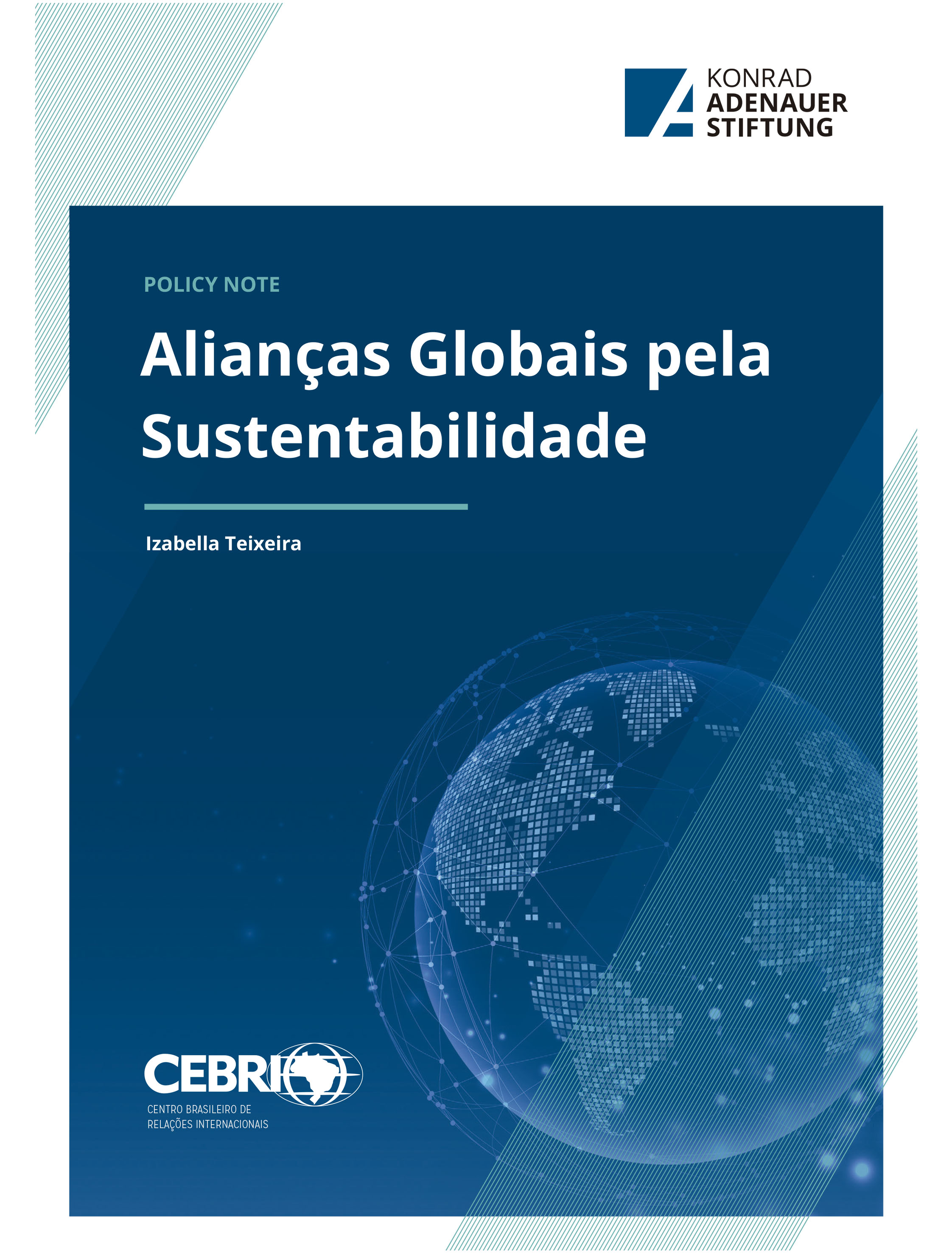Interviews
Structured Conversations IV: Anthropocene Crises, Sustainability, Global Health, and Consensus-Building for Multilateral Policies
- Multilateralism
- 09 december 2021
The Structured Conversations refer to the fourth axis of the CEBRI-KAS project, "Anthropocene Crises, Sustainability, Global Health, and Consensus-Building for Multilateral Policies”. The discussions are centered on fundamental reflections for understanding the current moment of rupture caused by Covid-19, its relation to the climate crisis and the possibilities of responses by the current multilateral system to the environmental and social challenges.
The experts answered questions about the role of different nongovernmental actors in climate action, and how regionalisms can become favorable arrangements for the adoption of joint policies between countries, such as Green Deals.
These conversations were coordinated by Professor Carlos R. S. Milani and seek to present the interviewees' perspectives on the multilateralism possibilities in the climate era.
“The main lesson of the pandemic was and remains the need to advance global governance of epidemic threats by endowing that governance with what it currently lacks: a specific mandate for the WHO or a new organization (as some suggest) to detect future epidemics and suppress them early on.”
Bertrand Badie
“The UN did not set up a specialized organization to deal with the climate crisis, so we are still debating about whether it is necessary to create a new institution. The UN’s response to the climate crisis is among its less well developed responses within the realm of global security.”
Maria Oliveira:
“The key lesson of the pandemic is the present relationship between political economy and health. This is the axis that connects the pandemic to the climate crisis.”
Thomas Diez
“A collaborative effort of great powers – the US under Biden, China’s notion of ecological civilization and the EU ambitions to play the role of a green normative power – may indeed make it possible to come to a concerted effort in the next four years.”
Christopher Kurt Kiessling
“I believe that regionalism can make extremely significant contributions to building inclusive and effective governance in the face of climate change.”
Cristina Yumie Aoki Inoue
“Humanity is not homogenous, and not all groups and societies are equally responsible, or can be directly connected to the drivers of global socio-environmental change. Thus, the anthropocene is also a time of contradictions, contestation, and combined crises.”
The Structured Conversations refer to the fourth axis of the CEBRI-KAS project, "Anthropocene Crises, Sustainability, Global Health, and Consensus-Building for Multilateral Policies”. The discussions are centered on fundamental reflections for understanding the current moment of rupture caused by Covid-19, its relation to the climate crisis and the possibilities of responses by the current multilateral system to the environmental and social challenges.
The experts answered questions about the role of different nongovernmental actors in climate action, and how regionalisms can become favorable arrangements for the adoption of joint policies between countries, such as Green Deals.
These conversations were coordinated by Professor Carlos R. S. Milani and seek to present the interviewees' perspectives on the multilateralism possibilities in the climate era.
“The main lesson of the pandemic was and remains the need to advance global governance of epidemic threats by endowing that governance with what it currently lacks: a specific mandate for the WHO or a new organization (as some suggest) to detect future epidemics and suppress them early on.”
Bertrand Badie
“The UN did not set up a specialized organization to deal with the climate crisis, so we are still debating about whether it is necessary to create a new institution. The UN’s response to the climate crisis is among its less well developed responses within the realm of global security.”
Maria Oliveira:
“The key lesson of the pandemic is the present relationship between political economy and health. This is the axis that connects the pandemic to the climate crisis.”
Thomas Diez
“A collaborative effort of great powers – the US under Biden, China’s notion of ecological civilization and the EU ambitions to play the role of a green normative power – may indeed make it possible to come to a concerted effort in the next four years.”
Christopher Kurt Kiessling
“I believe that regionalism can make extremely significant contributions to building inclusive and effective governance in the face of climate change.”
Cristina Yumie Aoki Inoue
“Humanity is not homogenous, and not all groups and societies are equally responsible, or can be directly connected to the drivers of global socio-environmental change. Thus, the anthropocene is also a time of contradictions, contestation, and combined crises.”
